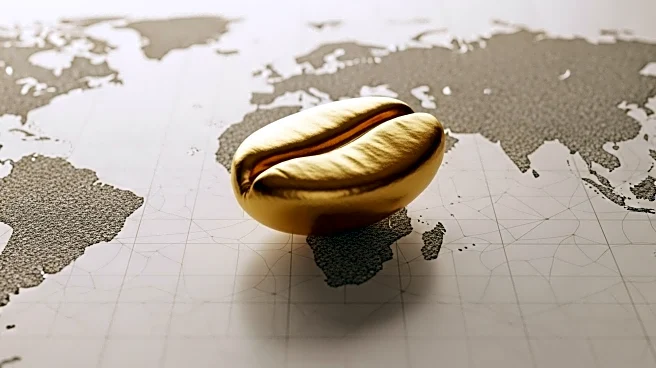What is the story about?
What's Happening?
The U.S. has imposed high tariffs on coffee imports, affecting major producers like Brazil and Switzerland. Brazil faces a 50% tariff, while Switzerland, known for coffee roasting, faces a 39% tariff. These tariffs are part of broader trade barriers that could lead companies to move production to the U.S. to avoid costs. The coffee sector is already facing challenges from weather patterns affecting yields and prices. The tariffs could further impact coffee prices in the U.S., depending on blends and roaster strategies.
Why It's Important?
The tariffs could reshape the global coffee industry, affecting producers' competitive positions and potentially leading to higher consumer prices in the U.S. Companies may consider relocating production to the U.S., impacting European coffee markets and compliance costs. The situation could drive coffee producers to explore emerging markets in Asia, where demand is growing. The tariffs highlight the complexities of global trade and the need for strategic adaptation by affected industries.
What's Next?
Coffee companies may accelerate plans to move production to the U.S. to avoid tariffs. The situation could lead to increased investment in U.S. facilities and changes in global supply chains. Producers may seek alternative markets or adjust blends to mitigate price impacts. The tariffs could prompt discussions within international trade forums and efforts to renegotiate trade agreements.
Beyond the Headlines
The tariffs raise questions about the balance between domestic economic policies and global trade dynamics. They underscore the need for industries to diversify markets and reduce reliance on single regions. Long-term, this could lead to shifts in coffee production hubs and changes in consumer preferences.

















